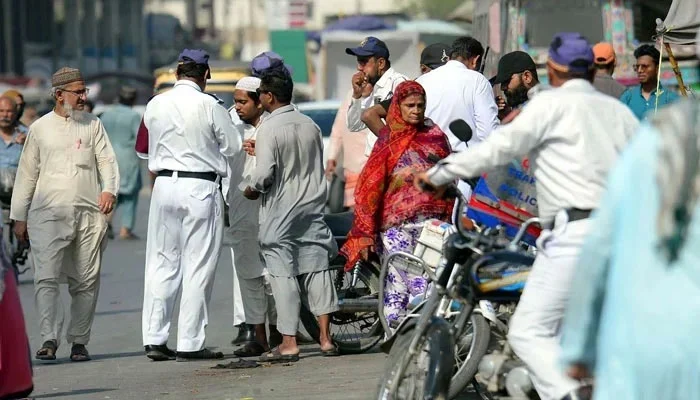Strict Enforcement Through Automated Traffic Monitoring
Karachi’s faceless e-challan system intensified its crackdown on traffic violations by issuing 3,485 fines in a single day on Monday. According to traffic police reports, the majority of violations—2,433—were for not wearing seat belts, followed by 511 fines for helmet non-compliance, 78 for mobile phone use while driving, 27 for wrong-way driving, and 51 for overspeeding. Additionally, 45 fines were issued against vehicles carrying passengers on rooftops, while five motorists were penalized for zebra crossing violations.
TRACS: A Step Toward Modern Traffic Management
The Traffic Regulation and Citation System (TRACS), launched on October 28, replaces manual ticketing with AI-powered CCTV surveillance, automatically detecting violations such as red-light jumping, overspeeding, and helmet non-compliance. The system eliminates human intervention, reducing corruption and bias while ensuring transparency and accountability. The government has established TRACS Sahulat centers at major traffic offices and police stations to assist citizens with fine payments, violation clarifications, and appeals.
Expansion Plans and Integration with Government Databases
Currently, 200 cameras have been installed across Karachi, with plans to expand to 12,000 city-wide before extending to other districts in Sindh. TRACS is integrated with key government databases, including excise and taxation, driving license records, and NADRA e-Sahulat, allowing citizens to view and pay fines online via dedicated apps. The system also collaborates with the Citizens-Police Liaison Committee to ensure oversight and grievance redressal.
Growing Public Backlash Over Erroneous Challans
Despite its technological advancements, TRACS has faced widespread criticism after multiple reports of incorrect fines. One citizen shared that he received an e-challan for riding without a helmet in Clifton while he was at home in Scheme 33 at the alleged violation time. The issued fine even displayed a mismatched vehicle number plate in the provided evidence.
Political and Legal Opposition Mounts
In response to public outcry, Sindh Chief Minister Murad Ali Shah directed authorities to waive first-time offenders’ fines as a goodwill measure but warned of strict action against repeat violators. Meanwhile, Jamaat-e-Islami MPA Muhammad Farooq submitted a resolution demanding an immediate review of the system, calling Rs5,000 fines “unjust” given Karachi’s poor road conditions and missing traffic signages.
Separately, the Markazi Muslim League filed a constitutional petition in the Sindh High Court, challenging the legality of the e-challan system. The petitioners argue that blocking citizens’ identity cards for unpaid fines is excessive and demand parity with Lahore’s Rs200 fine structure for similar violations.
